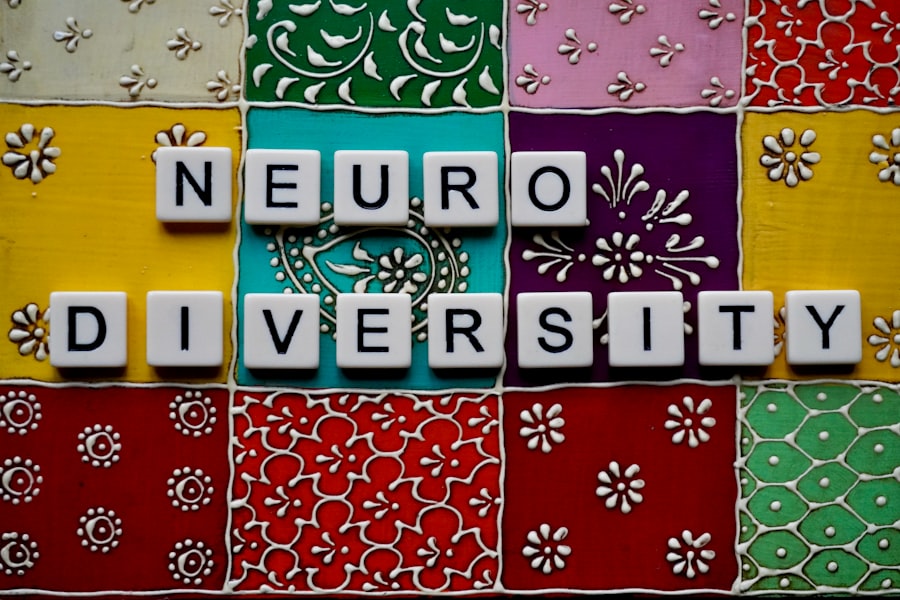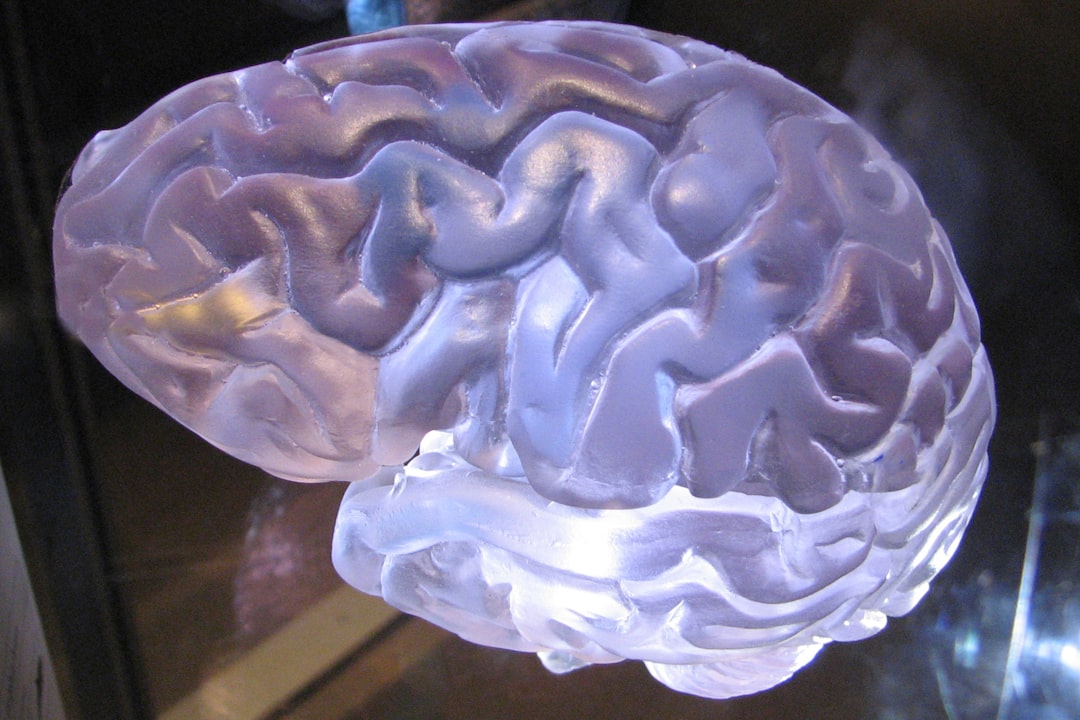Neurology is a fascinating field that delves into the complexities of the nervous system, encompassing the brain, spinal cord, and peripheral nerves. As you explore this discipline, you will discover how it plays a crucial role in understanding human behavior, cognition, and the myriad functions that govern daily life. Neurologists are tasked with diagnosing and treating disorders that affect these systems, making their work vital to improving the quality of life for countless individuals.
The intricate web of neural connections and pathways forms the foundation of our thoughts, emotions, and actions, making neurology a cornerstone of both medicine and psychology. As you embark on this journey through neurology, you will encounter a rich tapestry of knowledge that spans various aspects of human health. From the basic structure of neurons to the complex interplay of neurotransmitters, each element contributes to a greater understanding of how we function.
Neurology not only addresses physical ailments but also sheds light on the psychological dimensions of health, revealing how neurological conditions can impact mental well-being. This dual focus makes neurology an essential area of study for anyone interested in the human experience.
Key Takeaways
- Neurology is the branch of medicine that deals with disorders of the nervous system.
- The nervous system is made up of the brain, spinal cord, and nerves, and it controls everything we do, including thinking, feeling, and moving.
- Neurotransmitters are chemicals in the brain that transmit signals between nerve cells and play a crucial role in brain function.
- Neurological disorders can affect the brain, spinal cord, and nerves, leading to a wide range of symptoms and impairments.
- Genetics can play a significant role in neurological health, influencing the risk of developing certain disorders.
The Structure and Function of the Nervous System
The nervous system is a remarkable network that serves as the body’s communication hub. It consists of two primary components: the central nervous system (CNS) and the peripheral nervous system (PNS). The CNS, which includes the brain and spinal cord, is responsible for processing information and coordinating responses.
In contrast, the PNS connects the CNS to the rest of the body, relaying sensory information and executing motor commands. As you delve deeper into this structure, you will appreciate how each part works in harmony to maintain homeostasis and facilitate interaction with the environment. Within this intricate system, neurons play a pivotal role.
These specialized cells transmit electrical signals throughout the body, allowing for rapid communication between different regions. You will learn about the various types of neurons—sensory neurons that carry information from sensory receptors to the CNS, motor neurons that send signals from the CNS to muscles, and interneurons that connect neurons within the CNS. Understanding these components will provide you with insight into how sensory experiences are processed and how motor functions are executed, highlighting the elegance of neural communication.
The Role of Neurotransmitters in Brain Function

Neurotransmitters are chemical messengers that facilitate communication between neurons, playing a critical role in brain function. As you explore this topic, you will discover that these molecules are responsible for transmitting signals across synapses—the tiny gaps between neurons. Each neurotransmitter has a specific function and can influence various aspects of behavior and cognition.
For instance, dopamine is often associated with pleasure and reward, while serotonin is linked to mood regulation. By understanding these chemicals, you can gain insight into how they shape our experiences and behaviors. The balance of neurotransmitters is essential for optimal brain function.
An imbalance can lead to a range of neurological and psychological disorders. For example, low levels of serotonin are commonly associated with depression, while excessive dopamine activity may contribute to conditions like schizophrenia. As you delve into this intricate world, you will come to appreciate how neurotransmitters not only affect individual well-being but also play a significant role in broader societal issues related to mental health.
Understanding Neurological Disorders
| Disorder | Prevalence | Symptoms |
|---|---|---|
| Alzheimer’s Disease | 5.7 million Americans | Memory loss, confusion, disorientation |
| Parkinson’s Disease | 1 million Americans | Tremors, stiffness, slowness of movement |
| Epilepsy | 3.4 million Americans | Seizures, loss of consciousness, unusual sensations |
| Migraine | 39 million Americans | Severe headaches, nausea, sensitivity to light and sound |
Neurological disorders encompass a wide array of conditions that affect the nervous system’s structure and function. As you study these disorders, you will encounter both common ailments like migraines and epilepsy as well as more complex conditions such as multiple sclerosis and Parkinson’s disease. Each disorder presents unique challenges and symptoms, often requiring specialized approaches for diagnosis and treatment.
Understanding these conditions is crucial for developing effective interventions and improving patient outcomes. You will also learn about the multifaceted nature of neurological disorders, which can arise from genetic predispositions, environmental factors, or a combination of both. The impact of these disorders extends beyond physical symptoms; they can profoundly affect emotional well-being and cognitive function.
By exploring case studies and current research, you will gain a deeper understanding of how neurologists work to identify underlying causes and develop tailored treatment plans for individuals facing these challenges.
The Impact of Genetics on Neurological Health
Genetics plays a significant role in determining an individual’s susceptibility to neurological disorders. As you delve into this topic, you will discover how specific genes can influence brain development and function. For instance, mutations in certain genes have been linked to conditions like Huntington’s disease and amyotrophic lateral sclerosis (ALS).
Understanding these genetic factors can provide valuable insights into disease mechanisms and potential therapeutic targets. Moreover, you will learn about the concept of epigenetics—the study of how environmental factors can influence gene expression without altering the DNA sequence itself. This emerging field highlights the dynamic interplay between genetics and lifestyle choices in shaping neurological health.
By examining case studies and ongoing research, you will come to appreciate how genetic predispositions can be mitigated or exacerbated by environmental influences, emphasizing the importance of a holistic approach to neurological health.
The Importance of Neuroimaging in Diagnosis

Neuroimaging techniques have revolutionized the field of neurology by providing non-invasive methods to visualize the brain’s structure and function. As you explore this area, you will encounter various imaging modalities such as magnetic resonance imaging (MRI), computed tomography (CT), and positron emission tomography (PET). Each technique offers unique insights into brain anatomy and activity, enabling neurologists to diagnose conditions with greater accuracy.
You will also learn about the role of neuroimaging in research settings, where it aids in understanding brain connectivity and identifying biomarkers for neurological disorders. For instance, functional MRI (fMRI) allows researchers to observe brain activity in real-time as individuals engage in specific tasks. This capability has opened new avenues for studying cognitive processes and developing targeted interventions for various conditions.
By grasping the significance of neuroimaging, you will appreciate its transformative impact on both clinical practice and research in neurology.
Advances in Neurological Treatment and Therapy
The field of neurology has witnessed remarkable advancements in treatment options over recent years.
For instance, advancements in drug development have led to more effective medications for managing conditions like epilepsy and multiple sclerosis.
These treatments aim not only to alleviate symptoms but also to modify disease progression. In addition to pharmacological approaches, you will explore non-invasive therapies such as transcranial magnetic stimulation (TMS) and deep brain stimulation (DBS). These techniques have shown promise in treating conditions like depression and Parkinson’s disease by modulating neural activity.
As you examine case studies highlighting successful treatment outcomes, you will gain insight into how these advancements are reshaping patient care and improving quality of life for individuals with neurological disorders.
The Future of Neurology: Emerging Technologies and Research
The future of neurology is poised for exciting developments driven by emerging technologies and ongoing research efforts. As you look ahead, you will encounter innovations such as artificial intelligence (AI) and machine learning that are transforming diagnostic processes and treatment strategies. These technologies have the potential to analyze vast amounts of data quickly, identifying patterns that may elude human observers.
Moreover, advancements in neurotechnology—such as brain-computer interfaces—are opening new frontiers for rehabilitation and communication for individuals with severe neurological impairments. You will learn about ongoing research aimed at harnessing these technologies to restore lost functions or enhance cognitive abilities. By staying informed about these trends, you will gain a sense of optimism about the future of neurology and its potential to revolutionize patient care.
Neurology and Mental Health: Exploring the Connection
The relationship between neurology and mental health is a complex yet vital area of study. As you explore this connection, you will discover how neurological conditions can significantly impact mental well-being. For instance, individuals with epilepsy may experience anxiety or depression due to the unpredictability of their seizures.
Conversely, mental health disorders such as anxiety or depression can manifest with physical symptoms that mimic neurological conditions. Understanding this interplay is crucial for developing comprehensive treatment plans that address both neurological and psychological aspects of health. You will learn about integrated approaches that involve collaboration between neurologists and mental health professionals to provide holistic care for patients.
By recognizing the interconnectedness of these fields, you will appreciate the importance of addressing both physical and mental health in promoting overall well-being.
Neurology and Aging: The Effects on Cognitive Function
As individuals age, they often experience changes in cognitive function that can be attributed to various neurological factors. In this section, you will explore how aging affects brain structure and function, leading to conditions such as mild cognitive impairment (MCI) or dementia. Understanding these changes is essential for developing strategies to promote cognitive health in older adults.
You will also learn about lifestyle factors that can influence cognitive aging, such as physical activity, nutrition, and social engagement. Research has shown that maintaining an active lifestyle can help mitigate cognitive decline by promoting neuroplasticity—the brain’s ability to adapt and reorganize itself throughout life. By examining current studies on aging and cognition, you will gain valuable insights into how individuals can take proactive steps to support their neurological health as they age.
The Role of Lifestyle Factors in Neurological Health
Lifestyle factors play a significant role in maintaining neurological health throughout life. As you delve into this topic, you will discover how diet, exercise, sleep, and stress management can influence brain function and overall well-being. For instance, a balanced diet rich in antioxidants and omega-3 fatty acids has been linked to improved cognitive function and reduced risk of neurodegenerative diseases.
Physical activity is another crucial component; regular exercise has been shown to enhance neurogenesis—the formation of new neurons—and improve mood through the release of endorphins. Additionally, prioritizing sleep is essential for cognitive health; inadequate sleep can impair memory consolidation and increase susceptibility to neurological disorders. By understanding these lifestyle factors, you will be empowered to make informed choices that promote your neurological health now and in the future.
In conclusion, your exploration of neurology reveals a multifaceted field that encompasses various aspects of human health—from understanding the intricate workings of the nervous system to addressing complex neurological disorders. By delving into topics such as genetics, neuroimaging advancements, treatment innovations, mental health connections, aging effects, and lifestyle influences, you gain valuable insights into how these elements intertwine to shape our experiences. As research continues to evolve within this dynamic field, your knowledge equips you with a deeper appreciation for the complexities of neurology and its profound impact on human life.
In the ever-evolving field of neurology, staying updated with the latest research and insights is crucial for both professionals and enthusiasts. A related article that delves into fascinating neurological discoveries can be found on Hey Did You Know This. This platform offers a wealth of information on various topics, including the intricate workings of the human brain. For those interested in exploring more about neurology, you can read an insightful article by visiting
